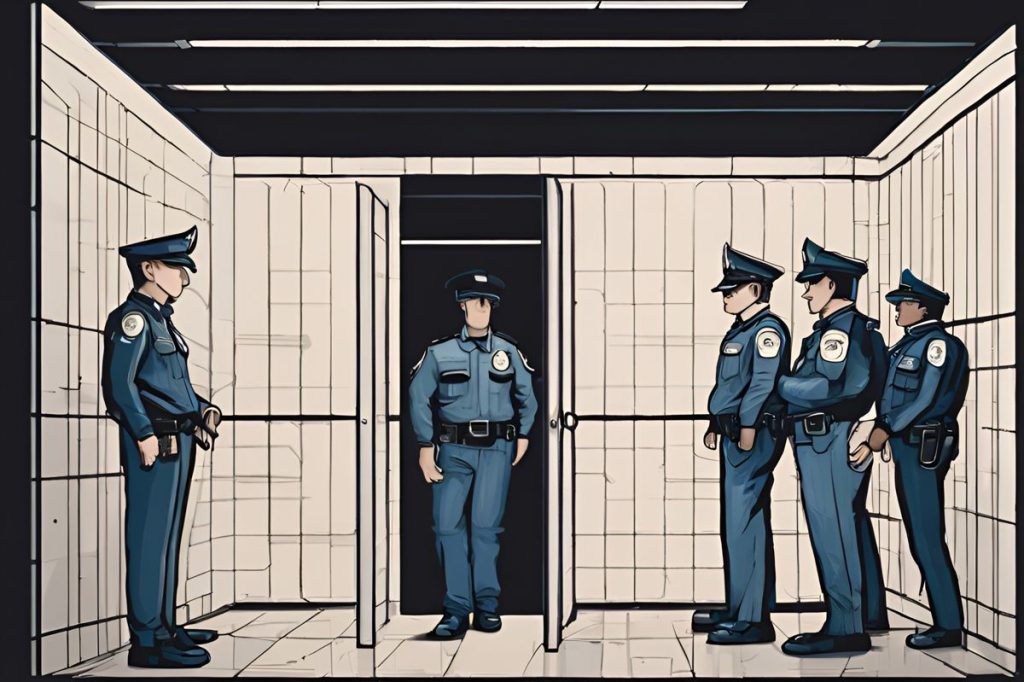The call for modernizing police holding facilities in Cyprus, spearheaded by Nikos Loizidis, aims to abolish overcrowded, outdated cells and establish new, humane detention centers compliant with European standards. The proposal also advocates for dedicated professionals, not police staff, to manage these facilities, highlighting the urgent need for these reforms based on reports of dire conditions in places like the Limassol holding center.
What are the proposed changes to modernize police holding facilities?
To modernize police holding facilities, the proposed changes include:
– Abolishing current overcrowded and outdated holding cells.
– Establishing purpose-built holding cells that comply with the Council of Europe’s Committee for the prevention of torture standards.
– Assigning cell management to dedicated professionals, not police staff.
– Investing in the creation of new, humane detention facilities.
Current State of Police Holding Cells
In recent debates, the conditions of police station holding cells have come under scrutiny. Nikos Loizidis, chairman of the trade union Isotita’s police branch, has publicly advocated for a significant change: the abolition of current holding cells in police stations. This call to action was made with concerns about overcrowding and the inability of existing facilities to accommodate the increasing numbers of individuals awaiting trial or held on remand.
Loizidis emphasized the systemic nature of the problem, pointing out that police stations across Cyprus are grappling with similar issues. The crux of the dilemma lies in the fact there isn’t a single dedicated space for the detention of these individuals, which results in an overburdened system. The proposed solution is the establishment of purpose-built holding cells, designed in accordance with the Council of Europe’s Committee for the prevention of torture’s standards.
Proposed Changes and Challenges
The suggested reforms also extend to the management of these holding cells. Loizidis argues that the task of guarding cells should not fall on the police staff but rather on professionals whose primary role is to manage such facilities. Moreover, he asserts that an investment is necessary for the creation of new holding facilities – a cost that must be met if solutions are to be found.
Despite these strong recommendations, Loizidis expressed a lack of optimism about being heard by the relevant authorities. He questioned why Cyprus’s system differs from standard practices elsewhere, where police stations do not typically house detainees for extended periods and have separate detention centers for this purpose.
Limassol Holding Centre: A Case Study
The urgency for these reforms was further highlighted by a report from ombudswoman Maria Stylianou Lottides, which criticized the dire conditions of the police holding center in Limassol. The report cited issues such as severe overcrowding, poor ventilation, and substandard toilet facilities. The Limassol center, with a capacity to house up to 34 people, is split into three sections: one for prisoners and those awaiting trial, one for minors, and one for administrative detainees. These conditions underscore the need for a reevaluation of the current system and the implementation of upgraded, humane facilities.
Implications for Human Rights and Future Operations
The debate on the state of police holding cells is not just a matter of logistics or efficiency; it is fundamentally a human rights issue. The conditions in which detainees are held can significantly impact their well-being and dignity. As such, the discussion surrounding the abolition of outdated holding cells and the creation of modern detention facilities is crucial. It reflects a broader commitment to civil rights and the fair treatment of individuals within the justice system.
By considering these changes, there is a potential to not only improve the conditions for those detained but also to enhance the effectiveness and reputation of the law enforcement system as a whole. With a focus on aligning with European standards and ensuring the proper treatment of detainees, this reform can set a precedent for other necessary reforms within the law enforcement and judicial systems.
What are the proposed changes to modernize police holding facilities?
The proposed changes to modernize police holding facilities include abolishing current overcrowded and outdated holding cells, establishing purpose-built holding cells that comply with European standards, assigning cell management to dedicated professionals, and investing in the creation of new, humane detention facilities.
What is the current state of police holding cells in Cyprus?
The conditions of police station holding cells in Cyprus have come under scrutiny due to concerns about overcrowding and inadequate facilities. Nikos Loizidis has advocated for the abolition of current holding cells in police stations, emphasizing the need for purpose-built cells that comply with European standards.
What challenges are involved in implementing these proposed changes?
Challenges in implementing these proposed changes include the need for significant investment in creating new facilities, resistance to change within the system, and a lack of optimism about being heard by relevant authorities. Additionally, there may be logistical challenges in transitioning from current practices to the proposed reforms.
Why is the modernization of police holding facilities important?
The modernization of police holding facilities is crucial for upholding human rights, improving the well-being and dignity of detainees, and enhancing the effectiveness and reputation of the law enforcement system. By aligning with European standards and ensuring proper treatment of detainees, these reforms can set a precedent for broader reforms within the justice system.

